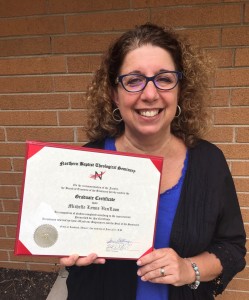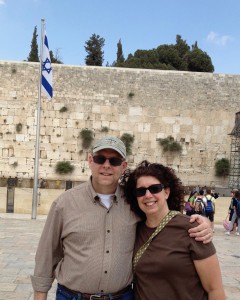We live as exiles. We’re called to be pilgrims. I am journeying through Scripture chronologically in order to explore our exile experience. I’ll also offer some helpful thoughts about how Christ can reshape that identity and reorient our journey so we live as pilgrims. To read earlier posts in the series, head to the sidebar at the right, click on “Categories”, then on “Pilgrim’s Road Trip”, which also happens to be the inspiration for this blog’s title.
* * * * * * *
Talk about an identity crisis.
The three-month old baby fished out of the reeds by one of Pharaoh’s daughter’s could never be mistaken for just another child member of the ruler’s household. His circumcision, prescribed by God as a permanent reminder to children of Abraham that they were not like all the other nation-kids in the neighborhood, ensured that. His birth mother drafted to be his wet nurse, must have meant that the child was getting some sort of whispered tutorial on who he really was. For that matter, Pharaoh’s daughter had given him a name that reflected his story: Moses.
One day, after Moses had grown up, he went out to where his own people were and watched them at their hard labor. He saw an Egyptian beating a Hebrew, one of his own people. Looking this way and that and seeing no one, he killed the Egyptian and hid him in the sand. — Ex. 2:1-12
He may have grown up in luxury, but Moses certainly hadn’t internalized the Egyptian lifestyle or their gods. I’ve sometimes wondered if his circumcised body was a daily reminder that he was not like those around him. Scripture implies that he was also pretty disconnected from what was happening outside of his comfy palace lifestyle he was a young adult. He awakened to who he was and where he came from when he witnessed an act of injustice, and responded with an even greater injustice – murder. The very next day, he saw two Hebrews fighting and attempted to quell the disagreement. One of the two somehow knew about what Moses had been doing the day before. He challenged Moses with angry words that were eerily prophetic: “Who made you ruler and judge over us?” (vs. 14)
They weren’t the only ones who knew about the murder. His adopted “father”, Pharaoh, attempted to execute some justice of his own by trying to kill Moses. Moses fled to Midian, which some scholars have suggested was either in the Arabian Peninsula or in the Sudan. Moses performed an act of gallantry on behalf of the daughters of an Midianite priest named Reuel. This man’s name meant “Friend of God”, and he acted as such by giving the man he dubbed “the Egyptian” a place to stay – and the hand in marriage of his daughter Zipporah.
When Moses’ wife had her first child, Moses named him Gershom. Moses explained the name choice: “I have become a foreigner in a foreign land.” The KJV translation perhaps better captures the plaintive tone of those words: “I have been a stranger in a strange land.”
Actually, he was a stranger in a strange land twice over. First, he and nearly 430 years of the generations of Abraham, Isaac and Jacob had been living in Egypt, cut off from the land God had promised them. And now he was in Midian, in exile from the land of his people’s exile.
It took every bit of Moses’s unusual life experience plus the humbling exile, cut off from everything he’d ever known, to transform this fiery young man into a restrained, courageous leader. His resume – a child saved from a death sentence who landed in the place that would teach him the rules and culture of Pharaoh’s court – was a precise fit for the job God had waiting for him at his burning bush job interview.
Moses had been shaped by his exile. He’d be returning to Egypt as a friend of the One who’d shared his Name with Moses. That divine encounter coupled with his exile experience forged a new and solid identity in him. He’d become a pilgrim.
 Not long ago, it dawned on me that when I read the account of the Exodus, I “heard” The Ten Commandments, that 1950’s epic starring Charlton Heston. The granite-jawed European flinty hero look of Heston and that “living flannelgraph” vibe of the movie had distanced me from the man Moses. It isn’t easy to pry those movie visuals off of a story about a man who’d may have lived in the lap of luxury as an outsider, who had to go into exile in order to become a pilgrim in order to lead thousands of his near and extended family members home.
Not long ago, it dawned on me that when I read the account of the Exodus, I “heard” The Ten Commandments, that 1950’s epic starring Charlton Heston. The granite-jawed European flinty hero look of Heston and that “living flannelgraph” vibe of the movie had distanced me from the man Moses. It isn’t easy to pry those movie visuals off of a story about a man who’d may have lived in the lap of luxury as an outsider, who had to go into exile in order to become a pilgrim in order to lead thousands of his near and extended family members home.
Slow down and prayerfully contemplate each movement of the account in the early chapters of the book of Exodus (or get to know them for the first time if you’ve never read them before). If you’ll do, you may pry your own version of Charlton Heston off of the story and discover, as I did, a man with an identity crisis who found reconciliation, healing and mission standing barefooted in the desert before his burning God.
When you read the first few chapters of Exodus, what sort of person do you imagine Moses to be? Do you, too, hear Charlton Heston’s voice coming out of Moses’s mouth? How do pop culture images of Moses get in the way of hearing the man in the Bible?











